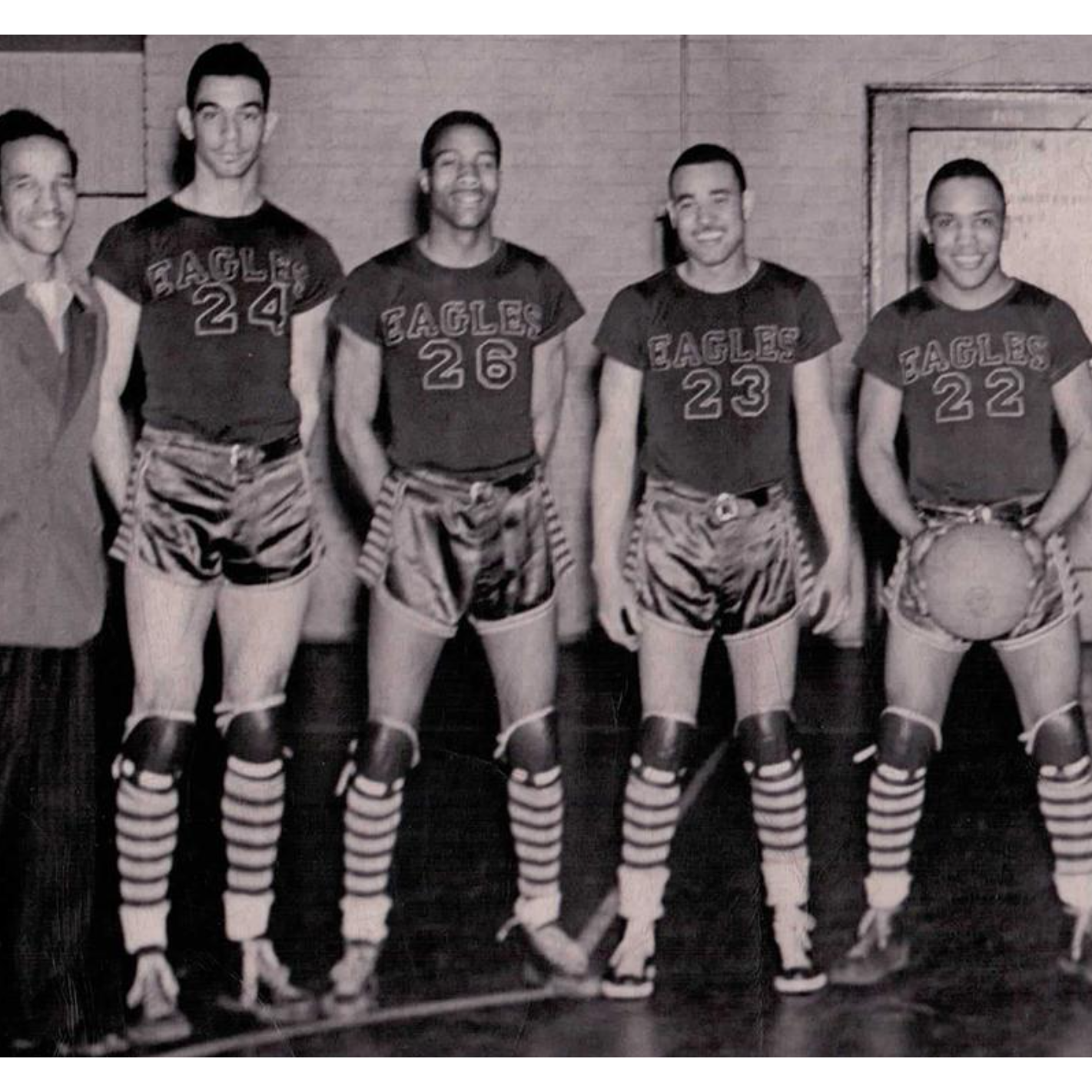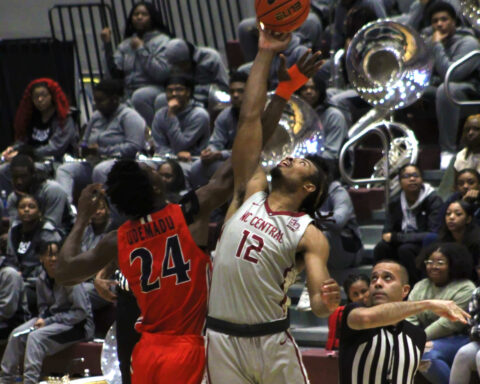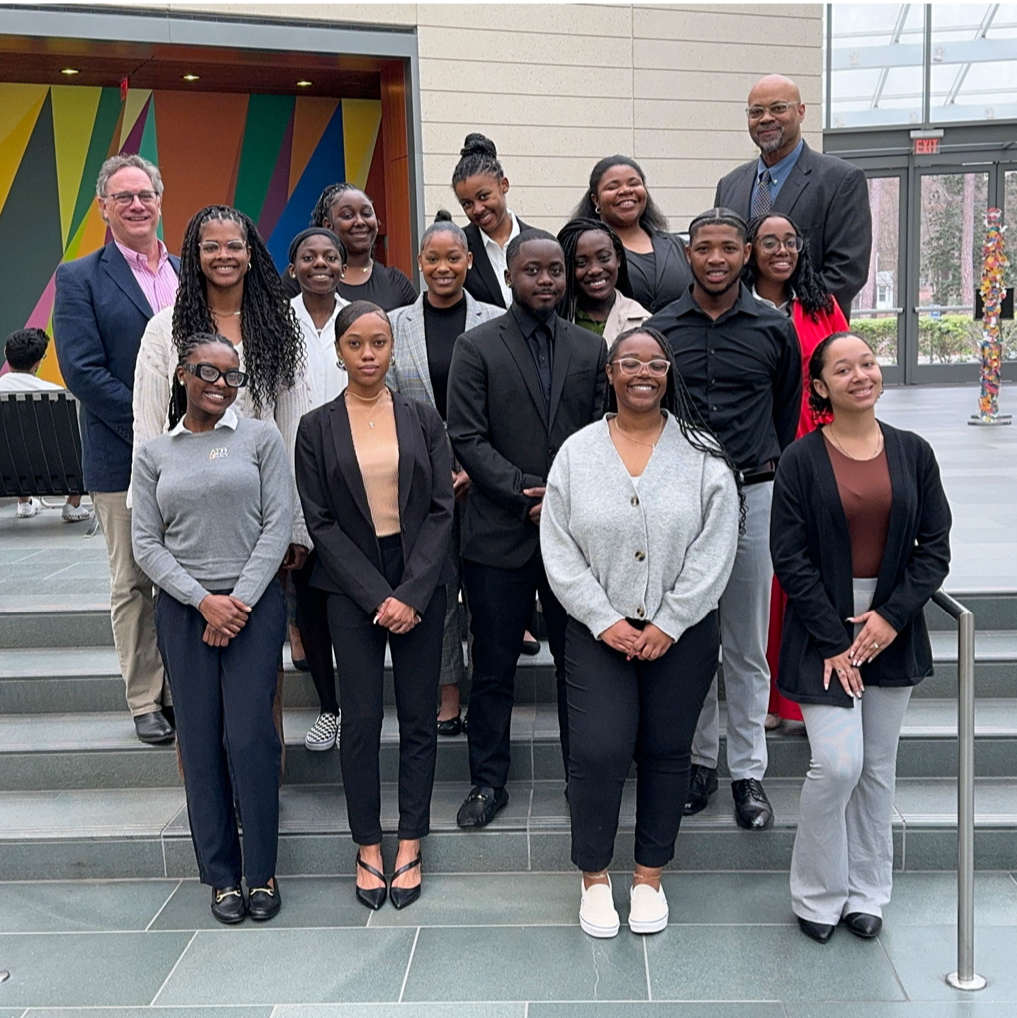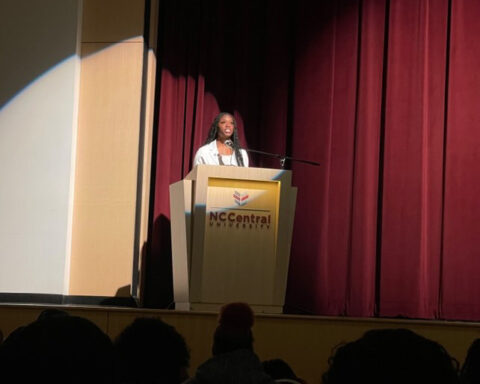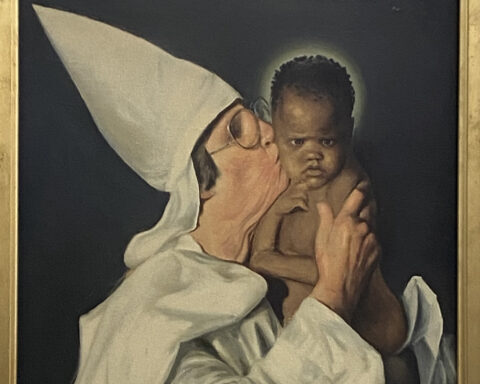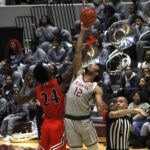Eighty years ago, in the depths of the Jim Crow era, basketball teams from what is now N.C. Central University and Duke University broke barriers in the South’s first racially integrated college basketball game.
Known as the “secret game,” it brought together the Eagles’ varsity men’s team and a squad from Duke’s School of Medicine.
Students in the YMCA chapters at Duke and North Carolina College for Negroes, as NCCU was known at the time, had been holding clandestine prayer meetings.
A conversation at one of those meetings started it all. One of the NCC students overheard some 1940s trash talk about Duke’s medical school team and issued a challenge to see who had the best team in Durham, according to author Milton Katz on the documentary film “Black Magic,” about the “secret game.”
“One of the gentlemen from Duke boasted about their medical team. They said they were the best in the state, if not even beyond the state of North Carolina,” said Katz, who wrote “Breaking Through”, a biography of NCC’s coach at the time, John McLendon. “Another member of North Carolina College for Negroes says, ‘Well, you may be great, but you haven’t played the greatest.’”
McLendon signed off on the idea and declared that the game would be held at NCC’s gym, with referees and a legitimate game clock.
The two squads scheduled the game for 11 a.m. on a Sunday because they knew most Durham citizens, including the police, would be in church. The teams didn’t tell any staff, and when a reporter for the Carolina Times found out, he agreed not to say anything.
That morning, March 12, 1944, Duke’s team jumped into borrowed cars, rode to NCC’s gym, and put their jackets over their heads to keep from being identified.
“There were no spectators,” Katz said in the documentary. “The first moments of the game there were missed shots, turnovers. I think they just had to get the bugs out, and they obviously did.”
Duke began to get going midway through the game, but in the second half the Eagles scored on nearly all of their possessions, pulling away to triumph 88-44.
“Literally, they ran Duke’s team out of the gym,” Black College Sports Encyclopedia author Fred Whitted said in the documentary.
The whole event was kept completely quiet because of a Jim Crow law prohibiting competition between HBCUs and PWIs. Even the Durham Police Department never found out.
This game helped pave the way for how modern basketball is played from high school to the NBA. Athletes from different backgrounds can compete against each other at the highest level without the fear of violence.
“History will never tell what they really did. It was just a ripple on the pond,” Whitted said in the film. “But the fact is the ripple came and then pretty soon it was a tidal wave.”

